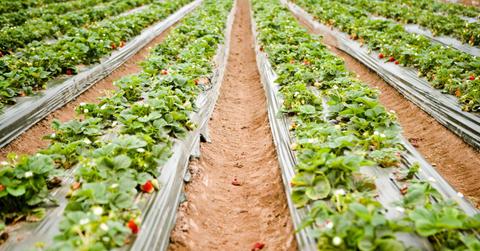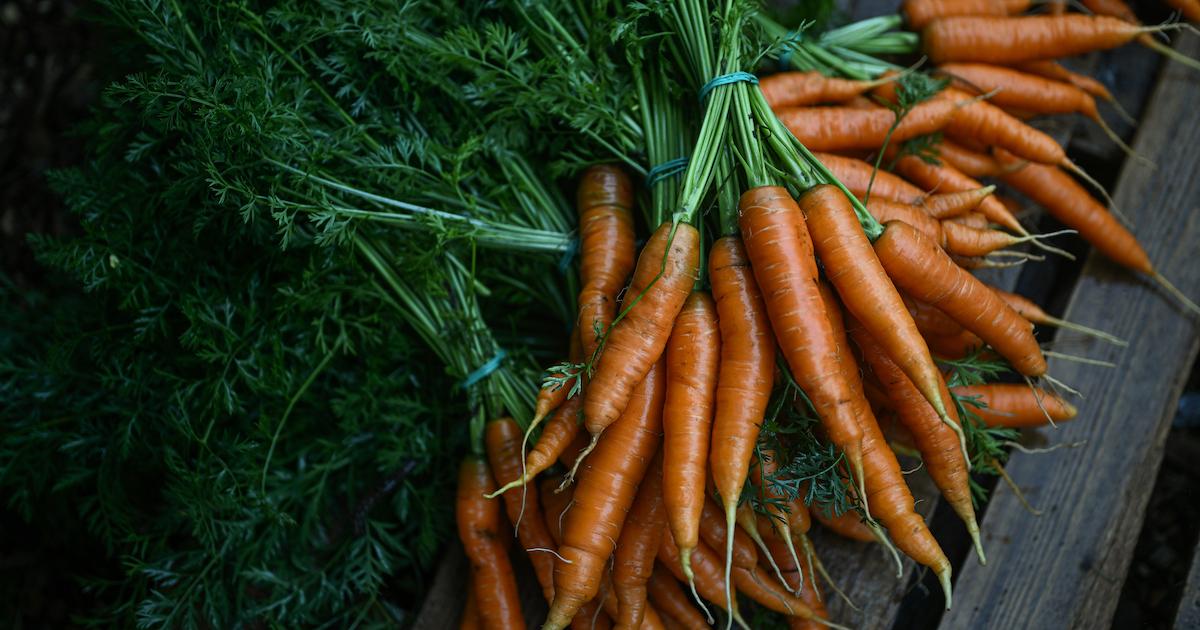Regenivores Are the New Climatarians: How the Trendy Diet Impacts the Planet
Published Jan. 24 2024, 3:14 p.m. ET

Research has found endless environmental benefits to the vegan lifestyle; in fact, various studies have found that eating plant-based is one of the best ways to lower one's impact on the planet. But no matter what you eat, a significant amount of resources required to grow crops.
Various trendy diets which seek to lessen the consumer's impact on the Earth have cropped up in recent years — including the regenivore diet, which promotes regenerative agriculture and other sustainable agriculture methods.
Below, we explore the benefits of the regenivore diet, define its goal and origin story, and seek to differentiate it between a growing number of diets with Earth-friendly intentions.

What is a regenivore diet?
It can be difficult to ascertain the finer points of a regenivore diet amongst what Axios describes as "a dizzying nomenclature" of other, similar eco-friendly lifestyles. The New York Times describes a regenivore as one who expects their food to come from companies that are "actively healing the planet."
Though it is generally assumed that those who follow a vegan diet for the welfare of animals also seek compassion for those within the food production process, the regenivore specifically places an emphasis on the well-being of the humans who partake in the process, from those on the farm to those who eat the food, per an article by Natural Grocers.
Natural Grocers explains that regenivores place a high degree of concern on the health of the soil in which food is grown — a major tenet of regenerative agriculture — as well as the health of those involved in the food growing, food sale, and food consumption processes.
Those who encourage regenerative agriculture cite its "social fairness," its potential to restore the density of micronutrients lost in other farming techniques, the lower production costs for farmers, fewer pesticides and fuel needed during food growing, and greater "resilience" of the farms upon which food is grown, per the Rodale Institute.
Additionally, per the Rodale Institute, many believe that employing more regenerative agriculture can make a huge difference in fighting climate change. Not only does regenerative agriculture work to address food insecurity and improve biodiversity, but if every farm on Earth switched to regenerative agriculture, it could sequester all CO2 emissions from the atmosphere, according to Rodale Institute research.
An intriguing proposition, to be sure, though farmed animals still remain a part of the food cycle in this regenerative agriculture world.

Regenivore vs. climatarian vs. vegan: what is the most sustainable diet?
Again, though regenerative agriculture practices seek to bring about feelings of "joy and happiness" amongst farmers, it nevertheless includes "livestock," or farmed animals, as part of the food-growing process, according to the NRDC.
Ensuring the health and well-being of those who grow the food we eat is a moral imperative; so, too, is recognizing the reality that stopping consuming animals and animal byproducts greatly benefits animals as well as the planet.
All of which brings us back to the well-intentioned, growing number of modern diets that seek to fit a planet-friendly lifestyle. Green Matters has explored the Climatarian diet, which likewise improves CO2 emissions, seeks to avoid consuming beef and lamb and other animals sourced from unsustainable methods.
However, while Climatarians avoid food imported by airplanes, thereby overlapping in some respects with locavores, they nevertheless consume pork, poultry, and other animal meats and byproducts.
There are also reducetarians and flexitarians, who simply aim to reduce their consumption of animal products and eat more plant-based meals.

More people eating vegan diets is backed by research confirming the significant impact it would have on planetary health just as much as consumer health, per the Physicians Committee for Responsible Medicine.
From the risk reduction of certain cancers, dire diseases, and chronic conditions to the compassionate sense in knowing that a vegan diet does not involve the suffering or use of animals for human consumption, the vegan diet is the clear standout amongst a crowded and muddled field of modern diets.
That said, as consumers seek to make food and lifestyle choices that make the lowest reasonable impact on the environment, it appears that adopting a vegan diet along with incorporating the ethos of the regenivore, climatiarian, and locavore diets could make for a food system that will benefit the planet, the animals, those who grow and sell food, and consumer health globally.